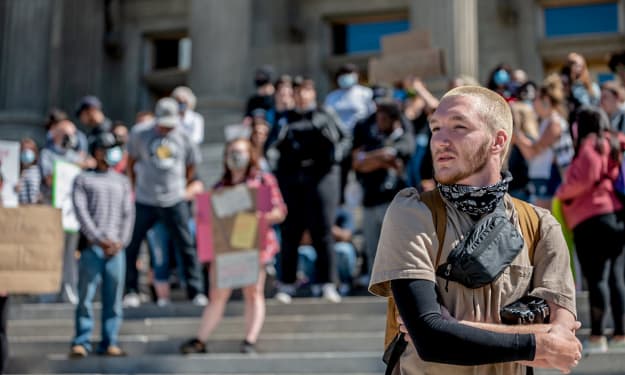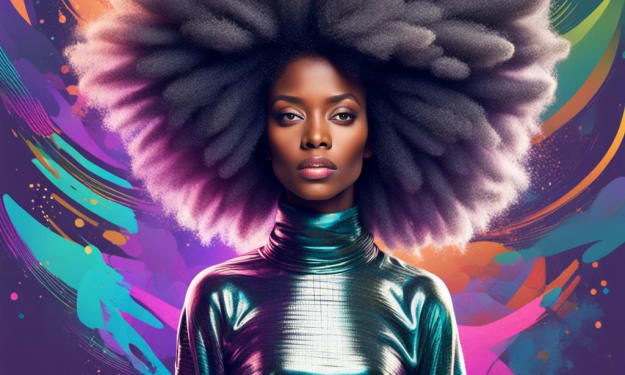Uniting Voices
Exploring Intersectionality in Human Rights Movements

In the ongoing struggle for human rights and social justice, the concept of intersectionality has emerged as a powerful framework for understanding and addressing the intersecting forms of oppression and discrimination faced by marginalized communities. Intersectionality recognizes that individuals' experiences of oppression are shaped by the intersection of multiple social identities, such as race, gender, sexuality, class, and ability. In this exploration, we delve into the intersection of intersectionality and human rights movements, uncovering its profound impact on advocacy, activism, and the pursuit of equality and justice for all.
Intersectionality as a Lens for Human Rights
Intersectionality provides a critical lens through which to examine and address the complex and intersecting forms of discrimination and marginalization faced by individuals and communities. By recognizing the interconnected nature of social identities and experiences, intersectionality highlights the ways in which systems of power and privilege intersect to perpetuate inequality and injustice.
Human rights movements that embrace intersectional approaches seek to center the voices and experiences of marginalized communities, recognizing that issues such as racism, sexism, ableism, and homophobia are deeply interconnected. By addressing the intersecting factors that contribute to social injustice, intersectional human rights movements aim to create more inclusive, equitable, and just societies for all individuals.
Intersectionality in Feminist Movements
Feminist movements have been at the forefront of embracing intersectionality as a guiding principle for advocacy and activism. Intersectional feminism acknowledges that women's experiences of oppression are shaped by intersecting factors such as race, class, sexuality, and ability. By centering the voices and experiences of women from marginalized communities, intersectional feminism seeks to address the unique challenges and barriers faced by diverse women.
For example, women of color, transgender women, and disabled women may experience intersecting forms of discrimination that are distinct from those faced by white, cisgender, able-bodied women. Intersectional feminist movements advocate for policies and practices that address the intersecting factors that contribute to inequality and injustice, promoting a more inclusive and equitable feminist agenda.
Intersectionality in Racial Justice Movements
Racial justice movements also embrace intersectionality as a guiding principle for advocacy and activism. Intersectional approaches to racial justice recognize that racism intersects with other forms of oppression, such as sexism, homophobia, and classism. By addressing the intersecting factors that contribute to racial inequality, intersectional racial justice movements aim to dismantle systemic barriers and promote equality and justice for all individuals.
For example, the Black Lives Matter movement acknowledges that the experiences of Black individuals are shaped by intersecting factors such as gender, sexuality, and socioeconomic status. By centering the voices and experiences of Black individuals from diverse backgrounds, the movement seeks to address the unique challenges and injustices faced by Black communities.
Intersectionality in LGBTQ+ Rights Movements
LGBTQ+ rights movements also recognize the importance of intersectionality in addressing the intersecting forms of discrimination faced by LGBTQ+ individuals. Intersectional approaches to LGBTQ+ rights advocacy acknowledge that issues such as homophobia, transphobia, and discrimination intersect with other forms of oppression, such as racism, sexism, and ableism.
For example, transgender individuals of color may face intersecting forms of discrimination based on their race, gender identity, and socioeconomic status. Intersectional LGBTQ+ rights movements advocate for policies and practices that address the intersecting factors that contribute to discrimination and inequality, promoting a more inclusive and equitable society for LGBTQ+ individuals from all backgrounds.
Conclusion
In conclusion, intersectionality plays a crucial role in human rights movements by providing a framework for understanding and addressing the intersecting forms of oppression and discrimination faced by marginalized communities. From feminist movements and racial justice movements to LGBTQ+ rights movements, intersectionality informs advocacy and activism aimed at promoting equality, justice, and dignity for all individuals, regardless of their intersecting identities.
As we continue to navigate the complexities of human rights advocacy, let us embrace intersectionality as a guiding principle for building more inclusive, equitable, and just societies for all individuals. By centering the voices and experiences of marginalized communities and addressing the intersecting factors that contribute to inequality and injustice, we can work towards a world where human rights are upheld and respected for all.
About the Creator
Mohamed Ali
Mohamed Ali is a passionate writer and researcher with a keen interest in exploring the complexities of human behavior and society through the lens of sociology. With a background in sociology and psychology.






Comments
There are no comments for this story
Be the first to respond and start the conversation.